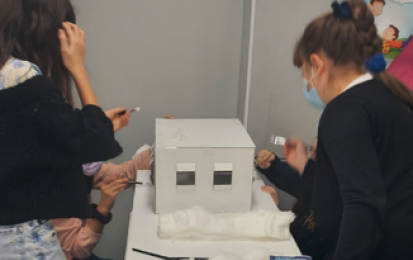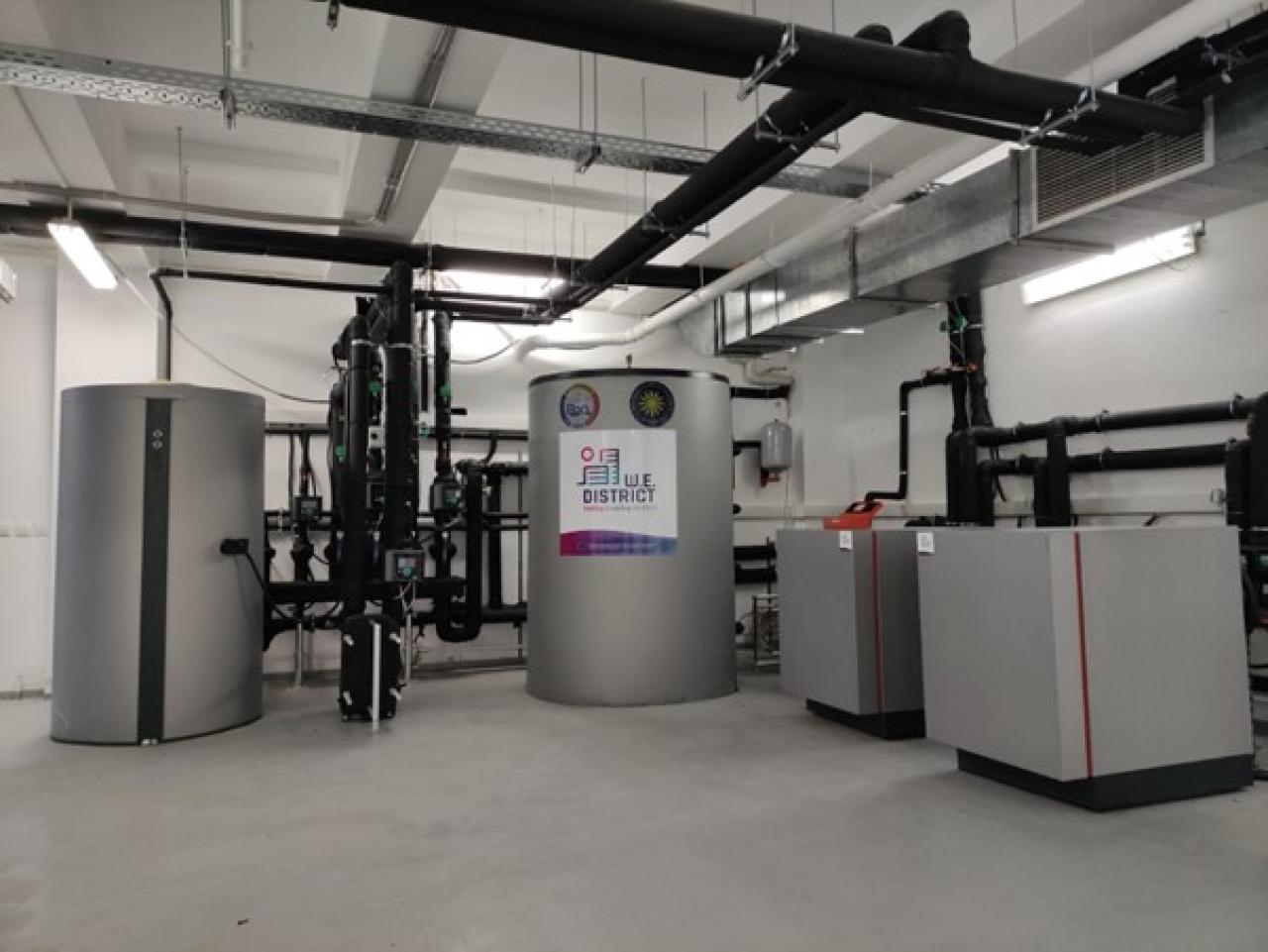On 20 and 21 November 2024, together with the European Urban Initiative (EUI), URBACT will host an EU City Lab in Bucharest (RO). This will be the second EU City Lab focused on the energy transition. Building on the first successful event, which took place in Viladecans (ES) almost a year ago, this edition will provide cities with tips and practical tools to help them finance their energy transition plans. This time we get down to business with a clear focus on finance. Financing the energy transition remains a massive challenge for many European cities.
Whether or not you have been following the discourse around the EU City Labs, you might know that these are immersive knowledge-sharing events that offer a deep dive into different urban topics. Why is it important to focus on finance in the context of the energy transition in Europe? What is Bucharest’s success story? What tools and networking opportunities are in store for participants? Counting down to the next EU City Lab, we can give some background and answers to these questions as well as exclusives from the event programme.
Can cities foot the bill for Europe’s green energy ambitions?
In recent years, investing in a green future has been a main priority of EU policies and initiatives delivering the European Green Deal. Around 30% of the EU’s 2021-2028 multiannual budget and NextGenerationEU instrument has been allocated to green investments. A substantial part of these efforts is directed to helping local and regional governments and municipalities. The European Commission has also identified over 100 European cities to champion the transition to net zero. These ‘Mission Cities’ are receiving support in the form of resources, know-how and inter-city knowledge exchanges. Thanks to this support, these cities will provide a blueprint for other European cities beyond 2030, ultimately empowering a collective green transition.

On the surface, cities today seem to have more opportunities than ever before to secure EU and regional support for their energy transition. But that’s not what a growing body of evidence suggests. Certainly, cities have varying experience and personnel capacity to attract investors, manage and monitor complex funds, etc., to make this happen. But converting these into hard cash isn’t always easy.
Research completed in 2023 around URBACT’s own community illustrates some of the obstacles that are at play. Specifically, access to finance and funding was identified as the biggest single barrier to implementing the Green Transition. Furthermore, although funds are available, cities often lack the experience to assemble and manage complex funding deals.
A lack of confidence and a low level of experience are also cited as important barriers in research conducted by the EU-funded Prospect + project. Their findings are presented in a Policy Webinar paper and corroborate URBACT’s own research. The survey respondents (cities of all sizes) identified a need for increased capacity (knowledge and time) to start using innovative finance options (96.7%) with almost three-quarters calling for regulatory changes, particularly at the national level. A perceived risk of working with these innovative finance tools was also singled out as a deterrent.
This is the starting point for the next EU City Lab: an acknowledgment of the issues around energy transition financing and a commitment to equipping cities of all sizes with practical tools to help address them.
How has Bucharest flicked the switch?
Bucharest is no stranger to many of the above challenges, making it a strategic location for hosting the next EU City Lab. First of all, like many central and east European urban areas, the city has ageing infrastructure, large numbers of old energy inefficient housing blocks, high levels of private car use and continued reliance on fossil fuels.

Second, it takes us to a part of Europe where significant levels of EU Cohesion Funds mean that a reliance on grants continues to be the norm, and where there can seem to be little incentive to explore new financial instruments. It is widely acknowledged that public funds alone are insufficient to implement the scale of change required to decarbonise our cities. Consequently, city authorities must build their capacity to raise funds from wider sources. This challenge – and what how we address it – will be central to the EU City Lab in Bucharest.
Third, Bucharest has its own energy transition story. At the heart of this story is the Saint Andrew Gymnasial School, which has hosted a multi-pronged approach, comprising retrofitting of the main building and the construction of a new zero-carbon facility, including state of the art teaching equipment. The impact has included a 40% reduction in energy use, 35% less water use and reduced respiratory issues for the 1 640-person school community through improved air quality.
All this works towards plans to develop a series of ‘Positive Energy Districts’ across the city, funded through a package that has included EU Cohesion Policy funds (e.g. the European Regional Development Fund), together with Horizon Europe and European Local Energy Assistance funds.
It is also worth mentioning that the Romanian capital has proposed this innovation to URBACT as a potential good practice, in response to the programme’s recent call. By the time we meet in Bucharest, we will know if their submission was successful.
Dipping into the EU City Lab agenda: networking opportunities, new tools, and more
All in all, the EUI and URBACT EU City Labs are about showcasing effective urban practice and building the capacity of our city participants. Part of this experience is seeing what works and having the opportunity, firsthand, to explore successful solutions. Bucharest has a good share of these, and City Lab participants will have the chance to investigate a few of them over the course of the two-day agenda.
Looking closer at the agenda, the Bucharest event will be in three parts. At the start, some of Europe’s most knowledgeable experts in the field of finance and energy will help us set the scene and share their inside know-how. Sylwia Slomiak, NZC in EUROCITIES & Project Coordinator for Prospect+, will get us started, providing insights into the challenges but, more importantly, the breakthrough examples she has worked with, in this key policy space. Sylwia’s take on the finance landscape for energy transition will be complemented by Alokananda Nath, Frankfurt School of Finance and Management. She also has a practical brief to showcase the Network Finance Tool that she was involved in developing to help cities navigate the funding maze. Participants will have the chance to try the tool with Alokananda and hear about how some cities are effectively using it.
Similarly to other EU City Labs, there will be site visits in Bucharest, and participants will hear from other front-runner cities willing to share their valuable experience on the topic.

Finally, participants will have an exclusive introduction and chance to test out a new energy funding tool designed by URBACT to help cities identify and apply for funding, particularly from funding sources beyond grants.
Stay tuned and connected
We hope that this article has answered some of your questions around the thematic focus and location of the next EU City Lab. The event will provide interactive sessions, with honest interventions and a focus on what really works on the ground, then this event is for you. If you are involved in the development, financing and implementation of your city’s energy transition projects, then you are also in our targets. And if you are looking for practical hints and tips, combined with hands-on tools to support your work, then you want to be in Bucharest in November.
Register now to join URBACT and EUI in Bucharest on 20-21 November!
Already registered? Read up on what was discussed during the first EU City Lab on the Energy Transition back in 2023. Or, learn more about the EU City Labs concept here.


